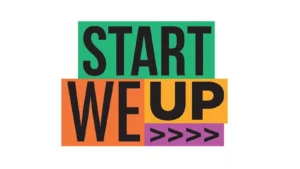Brussels–Defining common standards to eliminate legislative and financial barriers to women’s entrepreneurship: the ‘Start We-Up’ Manifesto landed on European round-tables to shed light on challenges that women face in the entrepreneurial sphere and, more importantly, to put forward concrete proposals to support gender equality and the fulfillment of all people in every sphere of life. “This is a central issue for Italy and the entire European Union. Constant work is needed to achieve full and enforceable equality also in the economic and business spheres,” European Parliament Vice-President Pina Picierno clarified, welcoming the result of the work that the Confimi Industria’s Women Entrepreneurs Group and the civic media The Contemporaries promoted in Brussels today (January 23).

While the EU directive on gender equality provides for a fixed quota on the Boards of Directors of listed companies by July 2026, there are still no definitions for a common law proposal for women’s enterprises. “The Manifesto is a first building block for the creation of this law,” stressed the president of Confimi Industria’s Women Entrepreneurs Group, Vincenza Frasca: “Women’s entrepreneurship is at the heart of our European Union. We believe that the Parliament is an authoritative persuader to approve a specific resolution.” The Italian vice-president of the EU institution accepted the invitation, recalling the goal of “arriving at an accomplished and homogeneous definition of what women’s enterprises are on European territory.” Without forgetting that “eliminating gender inequality would also unlock an increase in European GDP by hundreds of billions of euros” because “when women choose to fight, the direct consequence is the improvement of living conditions for the whole society,” Picierno stressed.
The ‘Start We-Up’ Manifesto, sponsored by Unioncamere and the Ministry of Business and Made in Italy, was first presented in May 2023 and arrived in Brussels just months before European elections, precisely because of its vision as a bridge between the new and old legislature. “In the Single Market, each country has its own definition and its own incentive rules, but this fragmentation undermines the concept of competition and does not facilitate the definition of good practices,” the co-founder ofLe Contemporanee, Valeria Manieri said. The chairwoman of the Impresa Donna Committee of the Ministry of Enterprise and Made in Italy, Valentina Picca Bianchi, dwelt on the “alternative definition to a patriarchal conception that limits women’s participation in entrepreneurship,” while the vice-president of Donne Impresa Coldiretti and Copa-Cogeca women entrepreneurs, Francesca Gironi, emphasized that “even in the most developed countries there are areas of inequality in the economic and entrepreneurial spheres, for example in access to credit,” and for this reason “we need the right regulatory tools against gender inequalities that penalize women.” The representatives of the Women and Equality Commission of the Alliance of Italian Cooperatives, Anna Manca and Annalisa Casino, called for a “change of course in the conception of welfare as purely an investment expense,” and the president of Conflavoro Pmi Impresa Donna, Laura Baldi, finally drew attention to the need to “encourage breaking the glass ceiling” through a Manifesto “written by women but not only for women.”
The ‘Start We-Up’ Manifesto for Women’s Entrepreneurship
The ‘Start We-Up’ Manifesto puts six proposals on the table to strengthen women’s entrepreneurship at the national and European levels. First and foremost, the unique and modern European definition of women’s enterprise (with a system of periodic monitoring of the existence of the requirements) is “useful to avoid competition problems in a European Single Market” but also to increase the ability to measure the performance of women’s enterprises and to analyze the public policies applied in individual countries. Incentives for business creation, tax breaks on labor costs, and wage growth will also be needed, increasing the funds available “both at the national and regional level” for women’s entrepreneurship under the NRRP and supporting cuts in the contributory tax wedge and the introduction of the minimum wage.
 ‘Start We-Up’ calls for criteria for private companies to access public tenders for proposals, monitoring of NRRP investments, abandoning “solutions such as click day and systems that reward bureaucratic speed over the quality or socioeconomic impact of fundable projects,” and the initiation of “gender monitoring of credit granted by banks and other financial institutions to new businesses started by women and started by men.” Regarding the NRRP, in particular, ‘Start We-Up’ pushes on welfare and enterprise, increasing services with virtuous public/private mechanisms: 4.6 billion euros for public daycare centers, additional funds for financing vouchers for care and assistance services, “minimum requirements in line with public supply” for private facilities that provide care and assistance services, and support for reconciling family life with work, “particularly women’s work.”
‘Start We-Up’ calls for criteria for private companies to access public tenders for proposals, monitoring of NRRP investments, abandoning “solutions such as click day and systems that reward bureaucratic speed over the quality or socioeconomic impact of fundable projects,” and the initiation of “gender monitoring of credit granted by banks and other financial institutions to new businesses started by women and started by men.” Regarding the NRRP, in particular, ‘Start We-Up’ pushes on welfare and enterprise, increasing services with virtuous public/private mechanisms: 4.6 billion euros for public daycare centers, additional funds for financing vouchers for care and assistance services, “minimum requirements in line with public supply” for private facilities that provide care and assistance services, and support for reconciling family life with work, “particularly women’s work.”
There are substantial proposals on culture, education, economic literacy, finance, green, and STEM. The Manifesto’s targets include zeroing the gender gap for Internet access and basic digital skills by 2026, increasing female employment in the Information and Communication Technology (ICT) sector to 30 percent, achieving 45 percent of women on the Boards of Directors of listed companies, 40 percent on the Boards of Directors of unlisted private and public companies, and 35 percent in top positions. Finally, the issue of active labor policies and self-entrepreneurship: “The concrete and long-term goal of the ‘Start We-Up’ Manifesto is to create a ‘prototype’ that can be replicated” for businesses specifically dedicated to women, starting with a “training center and a business incubator” for universities, companies, and the tertiary sector.
English version by the Translation Service of Withub



